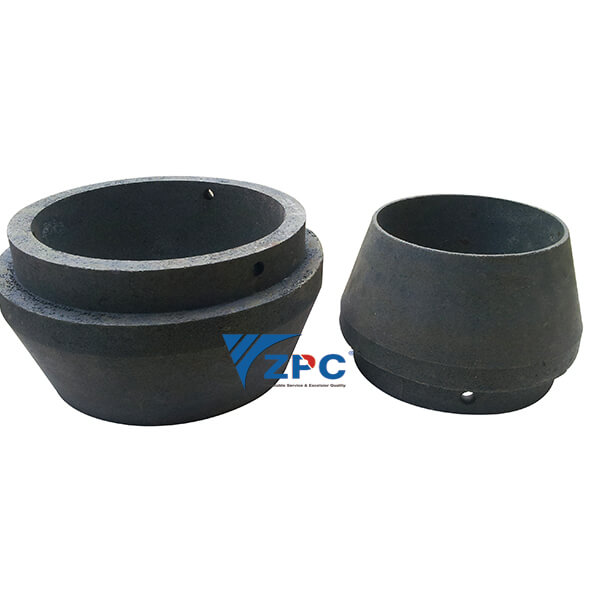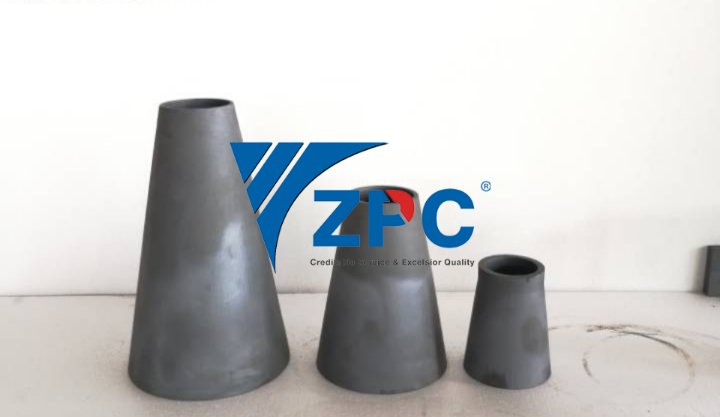You can develop shortness of breath if you have heart valve problems. This is because your heart valves help move blood through the four chambers of your heart and throughout your body.
Your heart valves and breathing may not seem closely intertwined, but they are. Even though you breathe in air, the oxygen in the air travels through your body in your blood. Silicon carbide ceramic plates, tiles and blocks

Without properly functioning heart valves, your blood is unable to move through the chambers of your heart to pick up fresh oxygen or move oxygen-rich blood to all the tissues in your body.
This can make it difficult to breathe, and shortness of breath is one of the symptoms you may experience.
This article will cover how heart valve disease can cause shortness of breath, and how this and other heart valve disease symptoms can be treated.
Yes, one of the main symptoms you may develop with heart valve problems is shortness of breath.
If you have heart valve disease, this means that one or more of the four valves in your heart aren’t working properly. The opening in the valve may not be large enough to move blood through, the valve may not open or close completely, or the valve may let blood flow back into the chamber of the heart where it came from.
The result is that oxygen-rich blood doesn’t move from your lungs, through your heart, and to the areas of the body that need it.
Without blood and oxygen, your body’s tissues send a signal to your heart and your brain to bring in more. This makes your heart work harder, without delivering much improvement.
This increased workload on your heart can make your heart both larger and weaker.
Heart valves can start to fail without any noticeable symptoms. This problem can develop slowly over time and with symptoms you might think are related to aging.
Some of the most common symptoms of heart valve disease are:
Your doctor will oftentimes hear a heart murmur on the exam. This is often the first clue of valvular pathology. Depending on that murmur’s location and timing, your doctor will be able to estimate which heart valve is affected.
That doctor may also use echocardiography to help further identify the murmur. You may need a yearly checkup or more often based on your doctor’s discretion.
Shortness of breath is a common symptom of most types of heart valve disease.
A leaky valve usually refers to regurgitation, as blood spills back into the chamber it came from, instead of moving into the receiving chamber.
When this happens, your blood isn’t getting to where it needs to go, preventing your tissues and organs from receiving an adequate amount of oxygen. Your body senses the need for more oxygen, and your heart and lungs work harder to try and meet that demand.
Shortness of breath or difficulty breathing is the result of this effort.
Heavy breathing isn’t the only symptom that appears with shortness of breath. Your body can accommodate this need for more oxygen over time in such a subtle way that you don’t even notice it.
Some signs and symptoms that your body is working harder to breathe include:
You may be able to recognize shortness of breath when you’re active, but if these signs and symptoms are affecting your daily life, talk with your doctor so they can investigate your heart and lung health.
Surgery is usually the most effective treatment for heart valve diseases. Heart valves that are stiff, get stuck, or are otherwise ineffective can be replaced with open heart surgery. A less invasive option is a transcatheter aortic valve replacement (TAVR).
During a TAVR procedure, a new valve is inserted inside the old valve through a long catheter in your groin. Not everyone is a candidate for this procedure, though. Your doctor will recommend a method for valve repair or replacement based on your type and degree of valve disease, as well as any other health conditions you have.
The TAVR procedure may be a good option for older adults or those unable to undergo open heart valve replacement. It does not last as long as open repair, though.
Your doctor might also consider a non-invasive Mitra clip procedure, which is a repair of a regurgitant mitral valve. It involves placing a clip on the mitral valve in order to repair and lessen the leaking.
Before you are ready to have surgery, your doctor may offer you medications that are designed to make your heart pump more effectively. These medications are usually a temporary solution to give your heart an extra boost of efficiency while you prepare for surgery.
Some medications often prescribed for these issues include:
Medications are prescribed to help manage symptoms, prevent damage to your heart, and delay the need for surgery.
Your healthcare team will continue monitoring your heart valve health to determine if surgery is needed.
Heart-healthy lifestyle choices can help prevent your risk of developing heart valve disease. These include:
Genetics can also play a role in heart valve disease, and some types — such as atresia — usually develop before birth. These types of heart valve diseases cannot be prevented. Be sure to speak with your healthcare team about treatment options and strategies.
Heart valve disease can appear with a range of symptoms. However, these symptoms might not appear until the condition is severe. Shortness of breath is your body’s way of telling you that your tissues need more oxygen. Poor movement of blood through your heart contributes to this issue.
Talk with your doctor if you are experiencing ongoing shortness of breath, or about what changes you can make now to prevent heart valve disease if you are at a higher risk.
Last medically reviewed on August 16, 2023
Our experts continually monitor the health and wellness space, and we update our articles when new information becomes available.
Heart valve diseases affect how blood flows through the heart muscle. Not all people experience symptoms, even if their condition is severe.
The heart valves work by ensuring that blood flows in a forward direction and doesn’t back up or cause leakage. Heart valve disorders prohibit this.
A heart valve specialist is a doctor that focuses on diagnosing and treating heart valve conditions. You may wish to consult one if you have questions…
An atrioventricular canal is a congenital heart defect connecting chambers of your child’s heart that shouldn’t be connected and typically require…
Atrioventricular septal defect is a developmental irregularity in which a hole connects two or more chambers in your child’s heart. This hole may…
Endocarditis can cause thin red or reddish-brown lines under fingertips known as splinter hemorrhages. This means the small blood vessels…
As people age, they are at a greater risk of heart valve disease. Early diagnosis is important. Effective treatment options are available.
A xenograft bioprosthetic heart valve replaces a damaged valve in your heart. It’s made from tissue sourced from animals such as pigs or cows.
This infection of the heart's inner lining can cause you to cough. It may cause heart failure, which might also lead to coughing.

Helmet Test Equipment Hypertension, or high blood pressure, increases your risk of heart attack and stroke. There are a variety of treatments that can help you manage your…